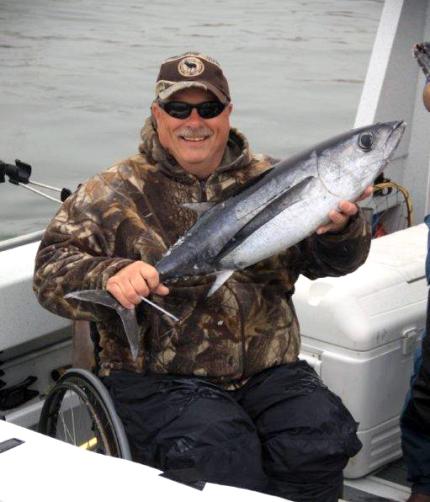
The Washington State Legislature and Fish and Wildlife Commission established eligibility requirements stated below. Having WDFW disability status will provide access to programs, services activities, lands and facilities.
Receiving a disability award or rating from the Social Security Administration or any other federal, state, or county entity does not automatically make one eligible for accommodations issued by WDFW.
Temporary and/or short-term disabilities are not permitted.
What you receive with disability status
You are automatically issued a “companion card” with each license purchase. The companion card allows you to designate another licensed person to assist you or act on your behalf in that function you are not able to perform for yourself WAC 220-413-140, WAC 220-305-120, WAC 220-413-210.
You may apply for special disability hunts or tags offered in the Big Game Hunting Seasons & Regulations booklet each year. Participate in disability events, raffles, or programs such as the Road Access Program for ambulation impairments. Utilize disability-designated facilities. Or request customized “Special Use Permits” designed to accommodate an individual’s very specific and distinctly particular need.
Receiving disability status does not provide veteran reduced license fees, or other reduced license fees.
How to apply for disability status
To qualify for disability status with WDFW you must have a permanent disability as defined in WAC 220-200-160.
Instructions
- Download the Hunter/Fisher Disability Status Application (PDF)
- Your MD, ARNP, or PA will need to complete and certify the Hunter / Fisher Disability Status Application. Return it to our main office at:
WDFW, Licensing Division
PO Box 43154
Olympia, WA 98504
Or you can fax the application to 360-902-2466.
- Please allow 2 weeks for processing, if you do not receive a notice on your application after 2 weeks please contact our office at 360-902-2464, 833-885-1012 or TTY (711).
Definition of a person with a disability
WAC 220-200-160: “Person with a disability” means a person who has a permanent physical disability or permanent developmental disability which substantially impairs their ability to participate in recreational activities or access department lands, including, but not limited to, the following:
Lower extremity qualifications
- A person who has permanent inoperable physical lower extremity impairment and is not ambulatory over natural terrain without a lower extremity prosthesis, or must permanently use an MD medically prescribed assistive device every time for mobility, including, but not limited to, a wheelchair, walker, crutch, leg brace, oxygen bottle; or
- Who have lost the use of one or both lower extremities, or
- Who have a severe physical limitation in the use of one or both lower extremities, or
- Who have a diagnosed permanent disease or disorder which substantially impairs or severely interferes with mobility.
Upper extremity qualifications
- A person who has permanent inoperable physical upper extremity impairment and is physically limited in their ability to hold and safely operate a legal hunting or harvesting device; or
- Who have lost the use of one or both upper extremities, or
- Who have a severe physical limitation in the use of one or both upper extremities, or
- Who have a diagnosed permanent disease or disorder which substantially impairs or severely interferes with the use of one or both upper extremities.
Visual impairment qualifications
- Blindness is a central visual acuity that does not exceed 20/200 in the better eye with corrective lenses, or the widest diameter of the visual field does not exceed twenty degrees, or
- Low Vision is a severe loss of visual acuity ranging from 20/70 to 20/200 while retaining some visual function, or
- Visual impairments may include, but are not limited to: Albinism, Aniridia, Aphakia, Cataracts, Glaucoma, Macular Degeneration, or other similar diagnosed permanent disease or disorder.
Not included: Hyperopia, Myopia, Astigmatism, and Presbyopia type conditions.
Cognitive intellectual developmental disability
Such as: cerebral palsy, down syndrome, epilepsy, autism, or another neurological condition of an individual found to be closely related to an cognitive intellectual disability or to require treatment similar to that required for individuals with intellectual disabilities, which originates before the individual attains age 18, which has continued or can be expected to continue indefinitely, and which constitutes a substantial limitation to the individual, as defined in RCW 71A.10.020.
Not included: ADD, ADHD, Anxiety, Bi-polar, Depression, PTSD, Cancer, Parkinson’s, Multiple Sclerosis.